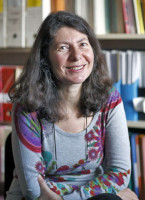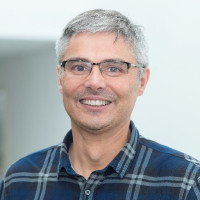Health
Longevity, Ageing & Long-term Care
Medical Treatment & Drug Development
AXA Projects
Spain
Identification and manipulation of molecular pathways relevant for age-dependent tissue regeneration
The somatic cells that constitue all tissues of the human body are specialized cells that have acquired a proper identity (blood cells, neurons…) during the embryonic development. Despite this specialization, all our cells have the same genetic information in their nucleus. The differences between cells lie on the presence of kind of tags called « epigenetic marks» that can turn genes « on » (expression) or « off » (silence) in a way that is passed on during cell division. All cells of a tissue bear the same epigenetic pattern. It was admitted that differentiation was an irreversible process till the birth of Dolly in 1996, the first mammal to be cloned with a somatic cell and the living proof that differentiated somatic cells can revert back to an embryonic state.
Ten years later, Japanese scientists proved it was possible with a genetic cocktail to revert human somatic cells to cells that have properties of embryonic stem cells, the so-called « induced pluripotent stem (iPS) cells ». Pluripotent means that these cells have the potential to give rise to any cell of the body. This breakthrough has great clinical implications, since these cells can, in principle, be produced from the patient’s own cells thus avoiding cloning of embryonic stem cells and the risk of immune rejection. It opens the way to personalized regenerative medicine and disease modeling.
The reversal of adult cells to iPS cells goes through nuclear reprogramming, a very complex process that implies to erase or reset all the previous tags specific of each tissue. How is this achieved is largely unknown. Unraveling the age-related barriers to efficient reprogramming is the main objective of this AXA project structured into four independent subprojects led by Maria Blasco (Principal Investigator, CNIO), Manuel Serrano (CNIO , Madrid, Spain), Maria Pia Cosma (CRG, Barcelona, Spain) and Maria Carmo-Fonseca (MMI, Lisbon, Portugal).
The research concerns the role of several factors during nuclear reprogramming mainly, the length of telomeres (the ends of chromosomes), the gatekeeper genes whose mutations predispose to cancer, the original reprogramming cocktail of genes, the gene silencing pathways. All this knowledge should improve the regeneration of tissues from older individuals, thus creating novel opportunities for the prevention and treatment of aging-associated diseases.
Ten years later, Japanese scientists proved it was possible with a genetic cocktail to revert human somatic cells to cells that have properties of embryonic stem cells, the so-called « induced pluripotent stem (iPS) cells ». Pluripotent means that these cells have the potential to give rise to any cell of the body. This breakthrough has great clinical implications, since these cells can, in principle, be produced from the patient’s own cells thus avoiding cloning of embryonic stem cells and the risk of immune rejection. It opens the way to personalized regenerative medicine and disease modeling.
The reversal of adult cells to iPS cells goes through nuclear reprogramming, a very complex process that implies to erase or reset all the previous tags specific of each tissue. How is this achieved is largely unknown. Unraveling the age-related barriers to efficient reprogramming is the main objective of this AXA project structured into four independent subprojects led by Maria Blasco (Principal Investigator, CNIO), Manuel Serrano (CNIO , Madrid, Spain), Maria Pia Cosma (CRG, Barcelona, Spain) and Maria Carmo-Fonseca (MMI, Lisbon, Portugal).
The research concerns the role of several factors during nuclear reprogramming mainly, the length of telomeres (the ends of chromosomes), the gatekeeper genes whose mutations predispose to cancer, the original reprogramming cocktail of genes, the gene silencing pathways. All this knowledge should improve the regeneration of tissues from older individuals, thus creating novel opportunities for the prevention and treatment of aging-associated diseases.
Steps towards regenerative medicine
To add or modify information on this page, please contact us at the following address: community.research@axa.com

Maria
BLASCO
Institution
Centro Nacional de Investigaciones Oncológicas
Country
Spain
Nationality
Spanish
Related articles
Health
Healthcare Systems & Access
Longevity, Ageing & Long-term Care
Joint Research Initiative
United States
Mortality: towards reliable estimates in developing countries
Getting the most out of unreliable data, and actuarial applications Indeed, by attempting to prove that the mortality datasets available... Read more

Magali
BARBIERI

